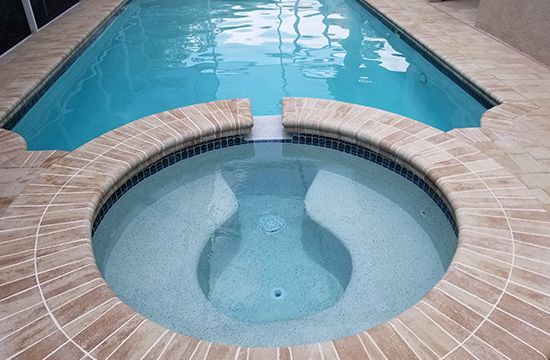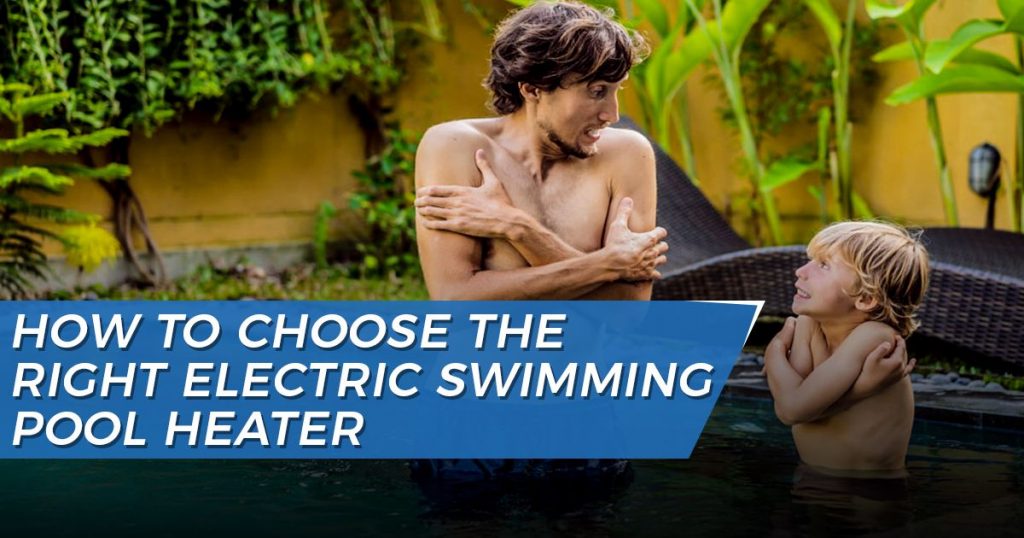What’s the Ideal Swimming Pool Temperature?
There’s a good chance you’ve had the experience of slowly lowering yourself into a freezing swimming pool. Chances are, though, that it wasn’t as cold as you thought.
But you probably didn’t know that your pool’s temperature affects more than just your comfort.
Recommended pool temperature by the American Red Cross
According to the American Red Cross, the ideal pool temperature for swimming lessons is around 84 degrees Fahrenheit. Younger swimmers have a harder time regulating their body temps. Warm, but not hot, is perfect because it keeps younger swimmers’ muscles warm and doesn’t cause chilling.
Competitive swimmers, on the other hand, require a pool between 78 and 82 degrees. Because of the high activity level, the Red Cross recommends the lower end of that range. It allows for strenuous exertion without overheating.
Older adults tend to appreciate an even warmer 86 to 88 degrees. Their bodies react poorly to drastic changes in temperature, so warmer pools are tolerable.
What happens to your pool if the water temperature is too warm?
There are two major problems if your pool temperature is too high. Algae and bacteria like warmer water, so anything over 82 degrees invites them to thrive. Even with regular chemical treatments, they’re still a concern. The other primary issue is cost. Running a pool heater above the recommended range can cost a fortune.
Swimming in a pool that’s too hot can also lead to some health problems. Overheated pools can cause dehydration, hypothermia, nausea, and dizziness. Even while immersed, your body produces sweat, so if the water’s too warm, the problem worsens.
How to lower your pool’s water temperature
As summer months get hotter, your pool’s temperature is bound to rise. But tossing in a truckload of ice doesn’t cool it down. Pool professionals recommend using aerators to keep the temperature under control. They introduce oxygen into the water, which can lower the water temperature.
Another way to introduce cold water to your pool is to install an evaporative cooler between the filter and the pump. Fans blow over the water as it passes by, cooling it down.
In extreme cases, or when you’ve got an endless budget, you can put a reverse-cycle heat pump into your system. Using refrigerant, much like an air conditioner, it pulls heat out of the water as it passes by on the way to the pool.
What happens if your pool’s water temperature is too cold?
Cold water plunges are all the rage. Everyone from athletes to people who want to live forever swear by them. Jumping into freezing open water as a stunt or way to build your immune system is one thing. But swimming in a chilly pool can have some negative side effects.
People who can’t regulate their body temperature can quickly become chilled and experience hypothermia. Cold shock can also increase your blood pressure and cause erratic heart rate. Your body must also work harder to stay warm, which can lead to early fatigue and cramps.
How to raise your pool’s water temperature
A heat pump is one of the easiest ways to raise your pool temperature. Much like an air conditioner, it pulls heat from the air and transfers it to liquid refrigerant. Then, the warmed liquid heats water as it passes through. This is an efficient way to warm your pool instead of burning up your budget on a gas pool heater.
You can cover your pool when not in use to help maintain the temperature and use solar heat to keep it warm. While this is less precise, you’ll love saving money from not having a mechanical heater.
Should you consider installing a pool heater?
Depending on your needs, a pool heater is a good investment. Smaller pools allow for better energy efficiency, and lower temperatures mean you spend less.
Benefits of a heated pool
The most significant benefit of a heated pool is swimming year-round. For some people, it’s just non-negotiable. Warmer temperatures also help with arthritis and increase blood circulation. Soaking in a perfect pool is also a stress reliever and can help relieve mental strain.
Benefits of a natural, cooler pool
While you might have a hard time agreeing, swimming in cool water has some health benefits, too. In healthy individuals, they’re almost worth the shock. Natural pools can increase energy levels and help burn calories. Also, it’s been shown to promote deeper sleep and lower your blood pressure.
And that deep breath you take when you jump into cold water promotes higher oxygenation levels in the brain.
Overall, your perfect pool temperature is an individual thing. Some like it slightly cooler than others, and that’s fine. But remember that the pros and cons go beyond just what you prefer. A safe pool temperature isn’t just about preference. There’s some science in there, too.
GPS Pools installs pool heaters and provides pool maintenance!
Year-round swimming is easy with a pool heater installed by GPS Pools. Our expert team can recommend a heater or chiller for your needs. With our wealth of experience, we’ll help you achieve that perfect oasis you’ve always dreamed of. While we only stock the most durable, reliable equipment, we’ll work on many brands we don’t carry. Whether or not we did your initial install, you can count on us.
Don’t miss out on another swimming season. Check out our website to get in touch with us today!


